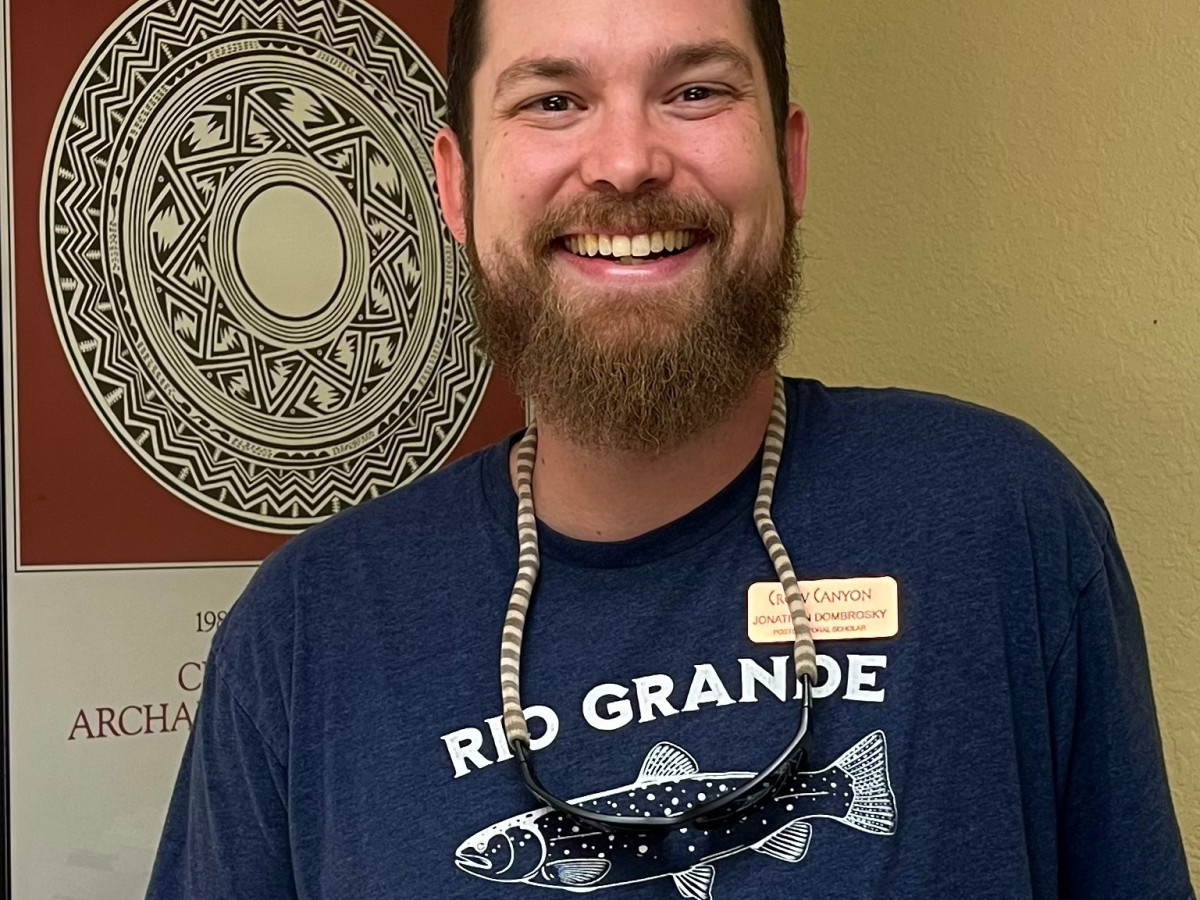Jonathan Dombrosky completed his Ph.D. at the University of New Mexico. His collaboration with Crow Canyon began as an undergraduate researcher. The bulk of his undergraduate and Master’s work was the analysis of faunal remains from Ponsipa’akeri, a site located in the Northern Rio Grande region of New Mexico. Additionally, he synthesized archaeofaunal data from Crow Canyon’s Goodman Point Community Testing Project and helped analyze protein residues from pottery sherds from the Center’s Basketmaker Communities Project. A Crow Canyon Field Intern in 2015, Jonathan also assisted with the Crow Canyon College Field School from 2016 to 2019, and again in 2021.
Jonathan’s dissertation work—funded by a NSF Doctoral Dissertation Research Improvement Award—focused on Ancestral Pueblo fishing strategies in the Middle Rio Grande region of New Mexico during the late pre-Hispanic period. He leads projects focused on management practices associated with birds of prey in the U.S. Southwest/Mexican Northwest and the prevalence of garden hunting in the Northern U.S. Southwest. Jonathan has broad interests in human behavioral ecology, stable isotope ecology, 3D geometric morphometrics, and conservation biology. Jonathan served as a Crow Canyon Postdoctoral Scholar between 2021 and 2023. In 2024, he joined the staff as an Environmental Archaeologist.
Summary of Jon’s investigations:
It is commonly assumed that fishes were unimportant in the diet of past Pueblo people in the U.S. Southwest. Yet, small numbers of fish remains are consistently recovered from Late pre-Hispanic/Early Historic archaeological sites in the Middle Rio Grande of New Mexico. The end of drought conditions may have been one factor that impacted food choice and fishing decisions during this time. Fishing could have been a reliably good source of food for Ancestral Pueblo farmers in small quantities. Stable isotope analysis and body size estimation (using 3D Geometric Morphometric techniques) suggest that fishing was associated with energy maximizing and risk reducing foraging linked with environmental change. This mix of foraging goals could be significant in the development of fishing behavior throughout human history, and the analysis of Ancestral Pueblo fishing charts a course to change the human-fish narrative across the globe.

